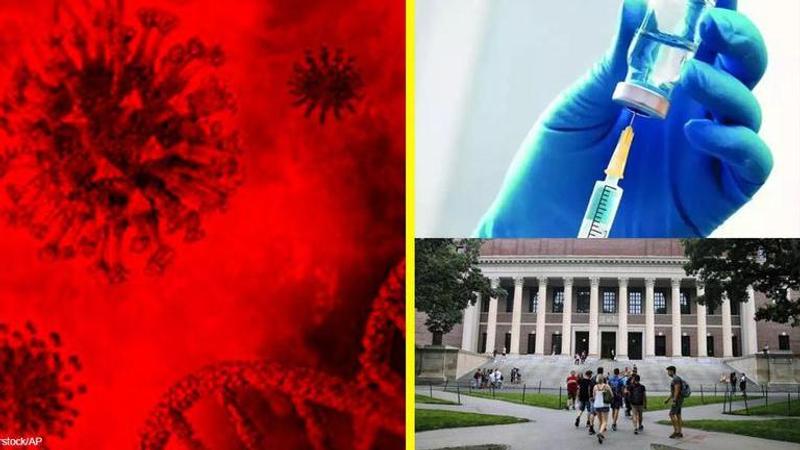Published 14:27 IST, August 26th 2020
Cambridge University to begin COVID-19 vaccine trials soon, post UK funding boost
Cambridge University may begin clinical trials of its COVID-19 vaccine candidate by late autumn after the UK government provided them with £1.9million funding.

Advertisement
The University of Cambridge is aiming to begin the clinical trials of its COVID-19 vaccine candidate as early as late autumn. This move came after the UK government provided Cambridge University with £1.9million funding for the coronavirus vaccine research. The University of Cambridge is collaborating with DIOSynVax and the University Hospital Southampton NHS Foundation Trust for this COVID-19 vaccine candidate.
Cambridge University's COVID-19 Vaccine
The funding provided by the UK government will help Cambridge in taking its COVID-19 vaccine candidate to the clinical trials level. The clinical trials for this COVID-19 vaccine will be conducted at the National Institute for Health Research (NIHR) Southampton Clinical Research Facility at the University Hospital Southampton NHS Foundation Trust. As per the Cambridge University press release, it is the funding that may help them start the trials by the autumn of 2020.
In order to develop their COVID-19 vaccine, DIOS-CoVax2, Cambridge University is using genetic sequences of all known coronaviruses. For this COVID-19 vaccine research, the scientists are using computer-generated antigens which have been encoded with synthetic genes that can help the human immune system in fighting coronavirus. According to the press release, founder of DIOSynVax, Professor Jonathan Heeney who is also the head of the Laboratory of Viral Zoonotic at the University of Cambridge said that they are trying to induce an immune response while using 3D computer modelling of coronavirus.
“Our approach involves 3D computer modelling of the SARS-CoV-2 virus’s structure. It uses information on the virus itself as well as its relatives – SARS, MERS and other coronaviruses carried by animals that threaten to ‘spill-over’ to humans again to cause future human epidemics. We’re looking for chinks in its armour, crucial pieces of the virus that we can use to construct the vaccine to direct the immune response in the right direction. Ultimately we aim to make a vaccine that will not only protect from SARS-CoV-2 but also other related coronaviruses that may spill over from animals to humans," said Professor Heeney.
According to the Cambridge University press release, this COVID-19 vaccine candidate can be 'freeze-dried' like a powder. This means that the coronavirus vaccine does not need cold storage which makes storage and transportation much easier. As per the release, it can be administered through 'a simple jet of air' and does not need to be injected in the human body.
“Most research groups have used established approaches to vaccine development because of the urgent need to tackle the pandemic. We all hope the current clinical trials have a positive outcome, but even successful vaccines are likely to have their limitations – they may be unsuitable for vulnerable people, and we do not know how long their effects will last for, for example. Our approach – using synthetic DNA to deliver custom-designed, immune selected vaccine antigens – is revolutionary and is ideal for complex viruses such as coronavirus. If successful, it will result in a vaccine that should be safe for the widespread use and that can be manufactured and distributed at a low cost," said COO of DIOSynVax, Dr Rebecca Kinsley, who is also a postdoctoral researcher at the University of Cambridge.
Updated 14:27 IST, August 26th 2020




